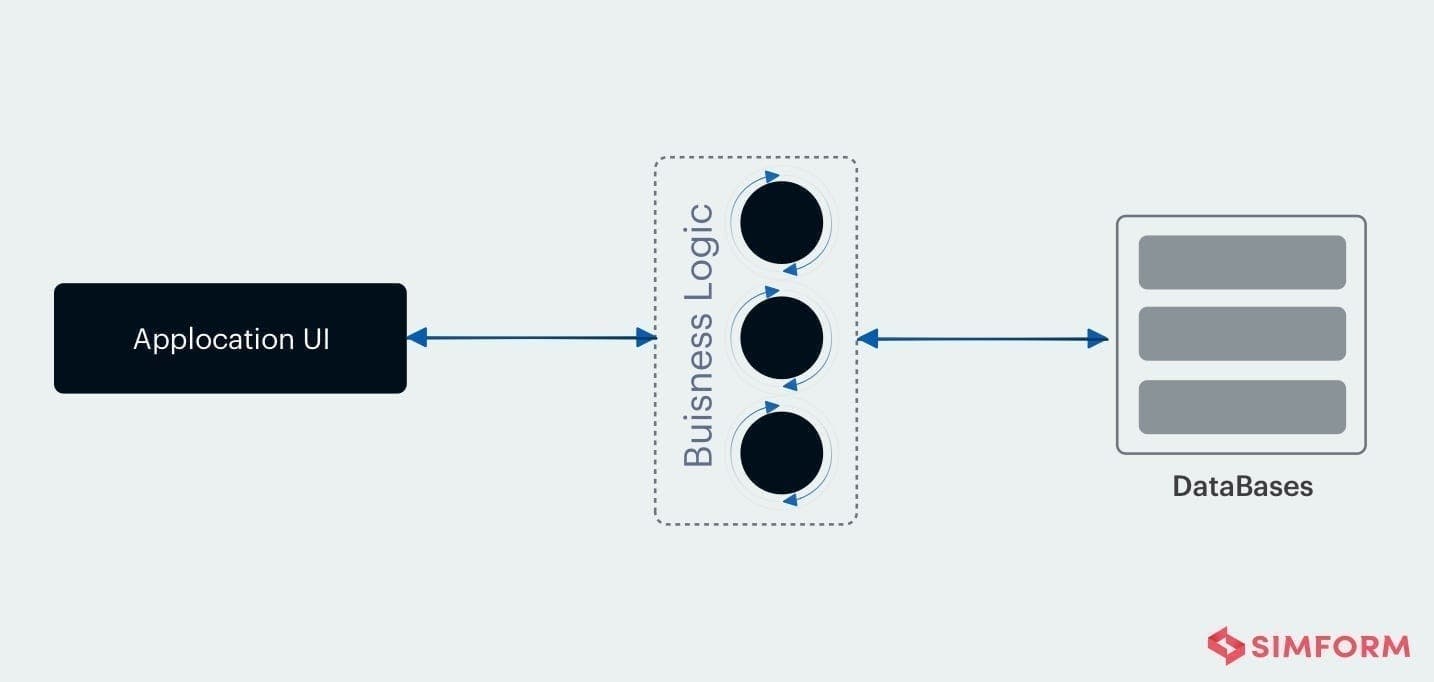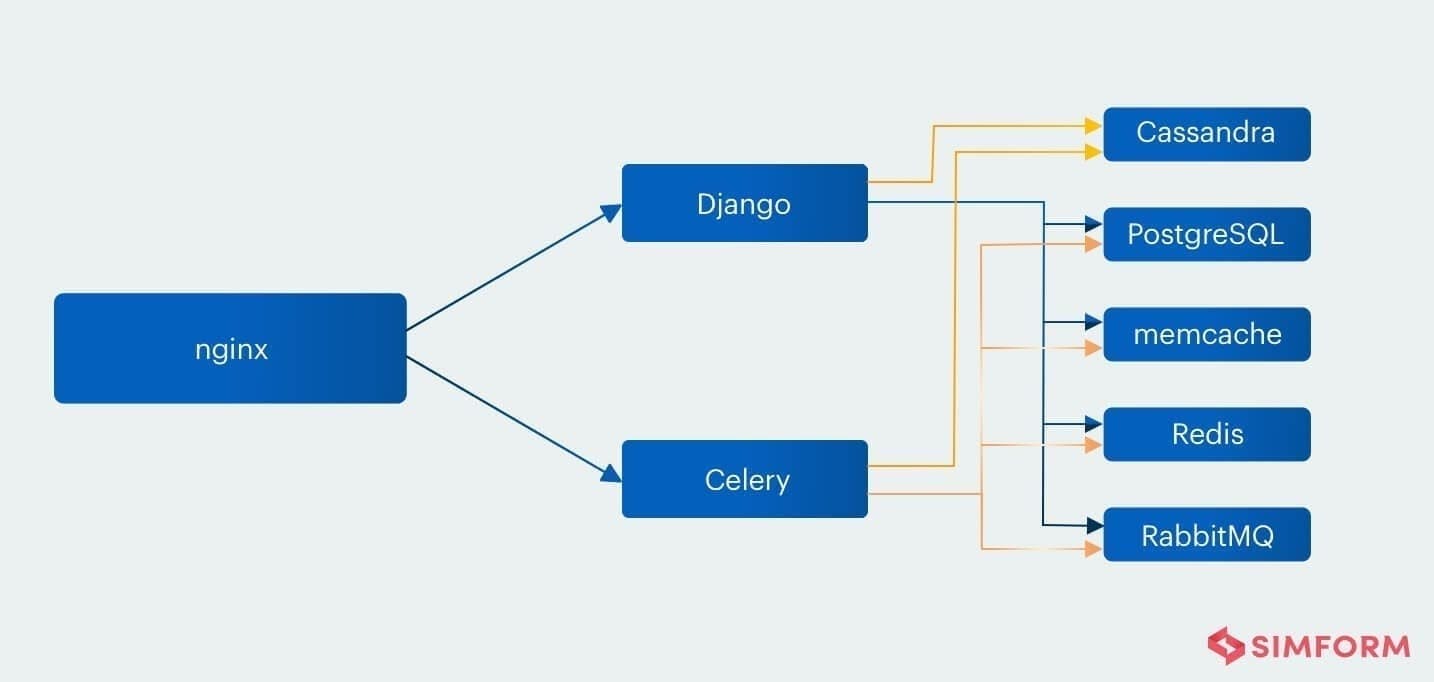The programmer's choice of frameworks depends upon their ability to learn and experience working on different projects. But how does that work when you have to decide based on the use case, framework's ability to scale the application, performance aspect, and whether your backend framework outranks other options? Nodejs and Django is one such comparison of backend platforms.
This comparison of the Javascript environment and Python framework is no less than a debate since both tools are significant.
To understand the detailed comparison of Nodejs and Django, we have covered the topic in detail: Node.js vs Django: Key differences, popularity, use cases, and more
Let's see what Nodejs and Django have in common or exceptional as their personal intact in building scalable apps and use cases.
Nodejs
Node.js is a developer-friendly tool. With the flexibility to design and customize templates, it has become a preferred tool for experienced developers. But the downside is that the beginners find it challenging to get things right at first.
Another challenge is that it takes more time to build an app since you have to start building an app from scratch. It will also be essential to invest your time searching for implementation modules and a separate time for their testing.
Nodejs and Django are two backend platforms that build scalable applications. But what is the fundamental difference between these two powerful tools? One is a Javascript-based runtime environment while the other is a Python-based framework.
For cases where adequate time is not given, there is a possibility of not receiving reliable outcomes. For a team working on Node.js projects should make sure somebody in your group is exceptionally experienced with Javascript, experience working with Node.js would surely be a plus.
Django
Django has a built-in templates system. Anyone with HTML understanding can go along well with this without having to understand python programming. It could be helpful for beginners, as the development process becomes faster due to the ready-made availability of templates. However, it doesn’t give you the flexibility to design everything from scratch, unlike Node.js.
Scalability in Node.js vs Django
Scalability pertains to developing apps considering the future scope to build features and functionality while handling many users/customers. A scalable solution is customizable, able to add new functionalities and open for addressing a tremendous amount of client requests, updates in real-time, and an increase in workload.
While Node.js and Django are preferred frameworks to build desired apps, let’s check their ability to build scalable apps.
Node.js

Node.js beautifully supports microservices architecture- a healthy pattern to build smaller, independent, and scalable services. It helps build apps with complicated and broad enterprise purposes.
Both Node.js and microservices architecture are suitable for each other. While Node.js can handle thousands of concurrent requests without compromising performance, microservices can create small modules for scalable apps; a great combination to build scalable and performant apps.
Due to its non-blocking I/O, event-driven architecture, and support for microservices, Node.js builds real-time streaming apps, networked and data-intensive apps.
Django

Though Django has certain restrictions to customize the apps and flexibility, it has an edge to build scalable apps because of its template fragment caching and availability of tools to handle data migrations such as performing heavy lifting of the application. It could be serving content, a large number of writes, and more types of apps.
Template fragment caching is a mechanism to cache the specific contents instead of re-rendering the block, which is the most sought-after requirement in scalable apps where so many operations and requests to be served in a short time.
Django could be used with any tech stack like Angular or Node.js to perform this heavy lifting of scalability data. So, Django is a favorable option to build highly scalable apps.
Security in Node.js vs Django
Node.js
Since Node.js doesn’t offer default security settings, your developers may have to walk a few extra miles to add security measures to ensure your application is secure. This step is important as the default session cookie names used by the framework could expose your application to the attacks. In addition to this, your application may be vulnerable to various attacks like Cross-Site Scripting(XSS), Cross-Site Request Forgery (CSRF), SQL Injection, among others.
Django
Conversely, Django takes security very seriously. It sanitizes its input to prevent malicious injection through the input fields of the web application. It also safely handles SQL queries to block SQL injection attacks. Some of the security features Django provides are:
Cross-site scripting (XSS) protection
Cross-site request forgery (CSRF) protection
SQL injection protection
Clickjacking protection SSL/HTTPS
Host header validation
Performance
The faster your web application, the higher the performance. Many things affect your web application’s performance, such as load times, code optimization, network configurations, server configurations, size, and data being passed to/from the server.
But when you compare the performance of tools like Node.js and Django, you should mainly consider the execution speed.
Node.js
When you have more resources, you can get the job done faster. When it comes to processing, more threads get tasks done more quickly. Though Node.js uses the event-loop model V8 Javascript engine to make the best use of single threads, it is not as fast as multiple threads.
Django
Django inherits Python’s high performance. The use of multiple threads helps increase performance. Django provides app caching and database optimization, further helping you improve the performance even more.
Conclusion
Though these three aspects aren’t enough to conclude the best tool to build robust apps, it must take you to conclude what’s best for your project needs. Let us know your thoughts in the comments below. You can also connect me on Twitter sharing your ideas.